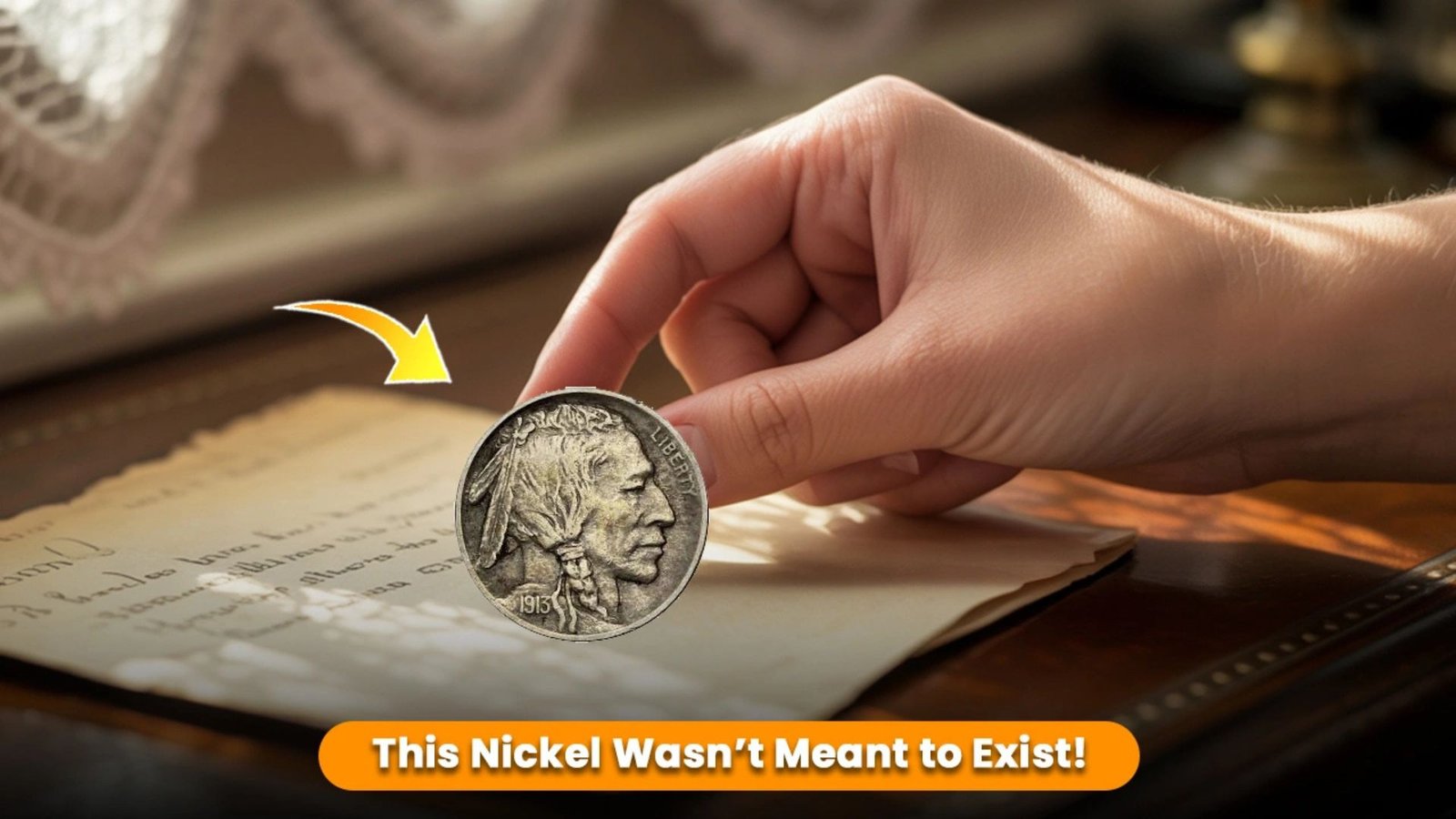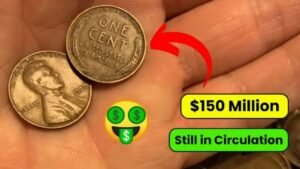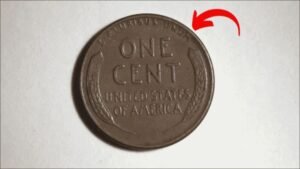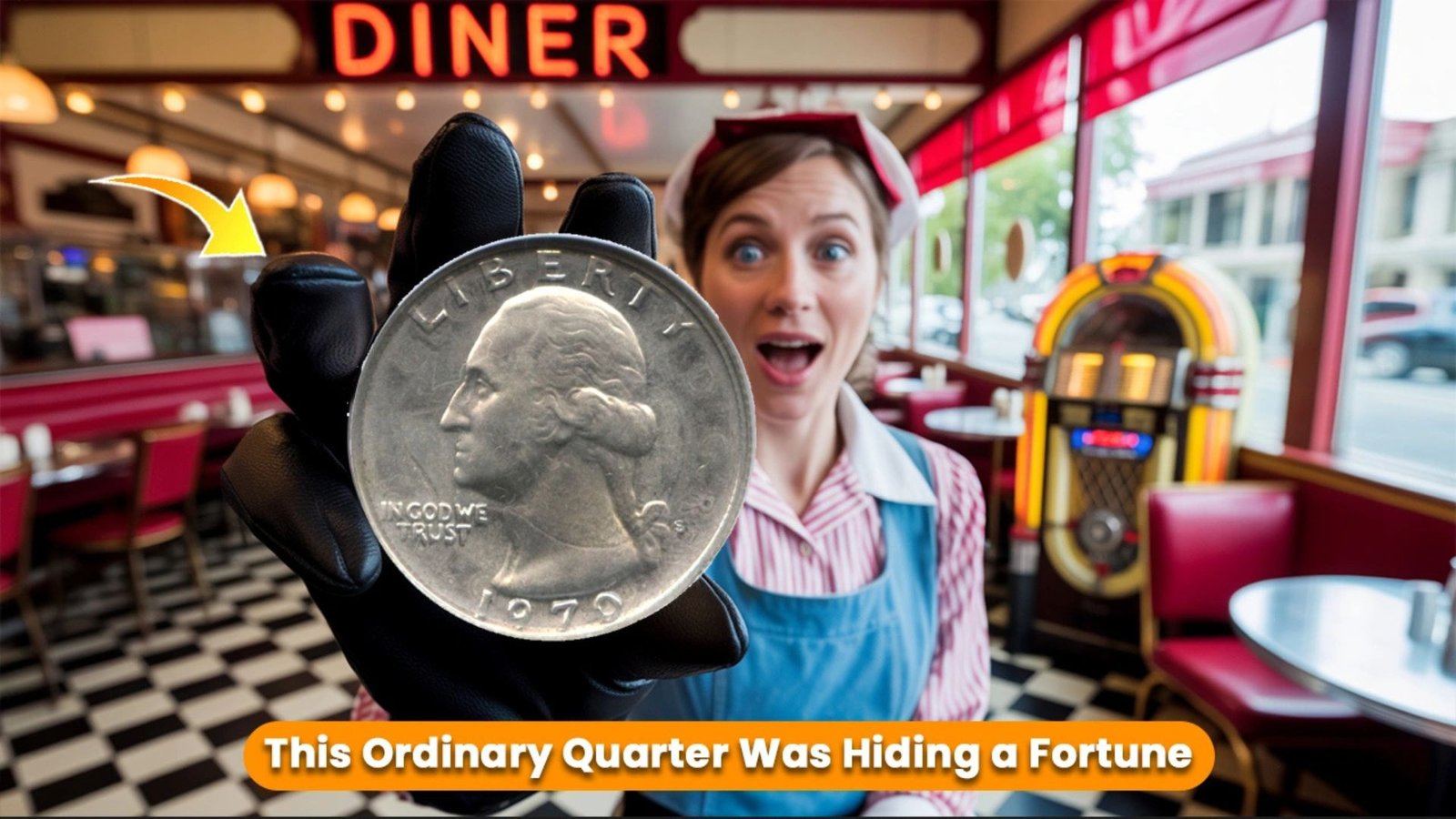A rare Buffalo Nickel, valued at an astonishing $1.4 million, was recently discovered by chance inside an old coin album. This incredible find has sparked excitement among coin collectors and history enthusiasts alike. The coin, which sat unnoticed for decades, highlights the hidden treasures that might be tucked away in forgotten collections. In this article, we’ll explore the story behind this remarkable discovery, why the Buffalo Nickel is so valuable, and how you might uncover a gem in your own collection.
The Story of the Buffalo Nickel Discovery
A Surprise Find in a Dusty Album
Imagine flipping through an old, dusty coin album and stumbling upon a treasure worth millions. That’s exactly what happened to one lucky individual who found a rare 1913 Liberty Head Nickel, often mistaken for a Buffalo Nickel due to its similar era and design. The coin was tucked away in a family collection, untouched for years. The owner, unaware of its value, had inherited the album and decided to take a closer look one day, leading to the shocking discovery.
Why This Coin Is So Special
The 1913 Liberty Head Nickel is one of the rarest coins in American history. Only five of these coins are known to exist, making them highly sought after by collectors. Its value comes from its scarcity, historical significance, and the mystery surrounding its creation. The coin was never meant to be produced, which adds to its allure. When it surfaced in the album, experts confirmed its authenticity, and its value skyrocketed to $1.4 million at auction.
What Makes the Buffalo Nickel Valuable?
A Brief History of the Buffalo Nickel
The Buffalo Nickel, officially called the Indian Head Nickel, was minted from 1913 to 1938. Designed by James Earle Fraser, it features a Native American profile on one side and a buffalo on the other. While most Buffalo Nickels are common, certain rare versions, like the 1913 Liberty Head Nickel, are worth a fortune due to their limited production and unique backstory.
Key Factors That Increase Value
Several factors determine a Buffalo Nickel’s worth. Here’s a breakdown:
| Factor | Description |
|---|---|
| Rarity | Coins with low mintage numbers, like the 1913 Liberty Head, are extremely valuable. |
| Condition | Well-preserved coins with minimal wear fetch higher prices. |
| Historical Significance | Coins tied to unique events or errors in minting are prized by collectors. |
| Demand | High demand from collectors drives up auction prices. |
The Role of Coin Grading
Coin grading is a process where experts evaluate a coin’s condition on a scale from 1 to 70. A higher grade means better condition and, often, a higher price. The discovered nickel was in excellent condition, which significantly boosted its $1.4 million valuation.
How the Coin Stayed Hidden for Decades
Forgotten in a Family Collection
The coin was part of a family collection passed down through generations. It sat in an old album, likely stored in an attic or basement, gathering dust. The owner had no idea of its worth until they decided to examine the collection more closely. This story shows how valuable items can hide in plain sight.
The Role of Chance in Coin Discoveries
Many rare coins are found by accident. People often inherit collections or buy them at estate sales without knowing what they contain. In this case, a simple decision to flip through an old album led to a life-changing discovery.
Tips for Finding Valuable Coins in Your Collection
Check Old Albums and Containers
If you have old coin albums, boxes, or jars, take the time to go through them. You never know what treasures might be hiding inside.
Look for Key Dates and Mint Marks
Certain years and mint marks (small letters indicating where a coin was made) can make a Buffalo Nickel valuable. For example, the 1913-S or 1937-D “Three-Legged” Buffalo Nickel are rare varieties.
Consult a Professional
If you suspect you have a valuable coin, take it to a reputable coin dealer or grading service. They can authenticate and appraise your find.
Preserve Your Coins
Handle coins carefully to avoid damage. Store them in protective holders to maintain their condition and value.
Why Coin Collecting Is a Rewarding Hobby
A Connection to History
Coin collecting, also known as numismatics, offers a window into the past. Each coin tells a story about the time it was made, from the artwork to the economy of that era.
Potential for Big Finds
Stories like the $1.4 million Buffalo Nickel prove that coin collecting can be financially rewarding. Even common coins can increase in value over time.
A Growing Community
Coin collectors form a passionate community. Joining clubs or online forums can help you learn more and connect with others who share your interest.
Conclusion
The accidental discovery of a $1.4 million Buffalo Nickel in an old coin album is a reminder that treasures can be hiding in unexpected places. Whether you’re a seasoned collector or someone with an old jar of coins, taking a closer look could lead to an exciting find. By understanding what makes coins like the 1913 Liberty Head Nickel so valuable, you can start your own treasure hunt. So, dust off those old albums, check for rare dates, and who knows—you might uncover the next big coin discovery!
FAQs
What is a Buffalo Nickel?
A Buffalo Nickel, also called an Indian Head Nickel, is a U.S. five-cent coin minted from 1913 to 1938. It features a Native American on one side and a buffalo on the other.
Why is the 1913 Liberty Head Nickel so valuable?
The 1913 Liberty Head Nickel is rare because only five were ever made, and they were not meant to be produced. Its scarcity and historical mystery make it highly valuable.
How can I tell if my Buffalo Nickel is valuable?
Check the date and mint mark on the coin. Rare varieties, like the 1913-S or 1937-D “Three-Legged” nickel, are worth more. Have it appraised by a professional for an accurate value.
Where can I sell a rare coin?
You can sell rare coins through reputable auction houses, coin dealers, or online platforms specializing in numismatics. Always verify the buyer’s credibility.
How do I start coin collecting?
Begin by researching coins, joining a coin club, or reading books on numismatics. Start with common coins and gradually learn to identify rare ones.









